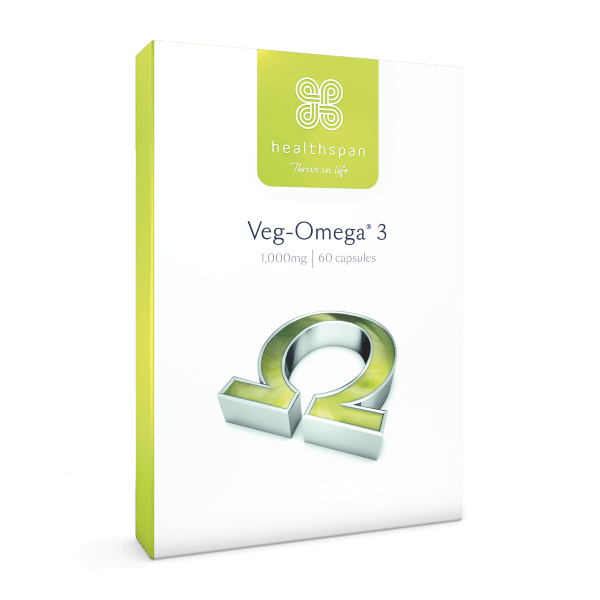Plant-based diets are growing in popularity, so Healthspan nutritionist Rob Hobson looks at how to make the switch the healthy way.
In the UK, there are around 1.2 million vegetarians and research carried out by market research company Mintel showed that the popularity of meat-free and free-from foods is growing. Vegetarian food producers such as Quorn have seen sale increases of 20 per cent and often these foods are not only used by vegetarians but also viewed by others as a healthy alternative to eating meat.
Benefits of a vegetarian diet
There are several reasons why someone may be or become a vegetarian. These include health concerns, religion, ethics (animal welfare or environmental concerns) or simply taste.
Research has shown that vegetarians often have healthier lifestyles than meat eaters. This does make it tricky to directly link the health benefits associated with a vegetarian diet to one single factor.
However, compared to a typical omnivore, a balanced meat-free diet is likely to contain a greater quantity of fibre-rich wholegrain foods and pulses, with vegetarians more likely to exceed the recommended fruit and vegetable intake of five-a-day.
This means they're also likely to have a greater intake of key vitamins, antioxidants and phytochemicals, which are plant-derived compounds that help to protect the body against disease.
The combination and balance of nutrients and plant compounds in a vegetarian diet has led research studies to show associations between plant-based diets and lower incidence of obesity, heart problems, high blood pressure, type II diabetes and digestive disorders.
Variations on a vegetarian diet
Technically, a vegetarian is a person who doesn't eat meat, fish, fowl or products that contain them. However, in reality vegetarian eating patterns can vary greatly. The most common classifications include:
Semi-vegetarian
Mostly practice a vegetarian diet but do eat animal foods occasionally
Lacto-ovo-vegetarian
Include milk and dairy products as well as eggs but avoid all meat, fish and poultry
Lacto-vegetarian
Include milk and all other products made from milk
Pescatarian
Include fish in the diet
Vegan
The most restrictive; consumes no meat, poultry, fish, dairy, eggs or honey
Ensuring nutritional adequacy
The nutritional needs of a vegetarian or vegan are no different to that of a non-vegetarian and can mostly be achieved by following the healthy eating guidelines set out in the Department of Health's Eatwell plate.
It's particularly important on a solely plant-based vegan diet to include plenty of energy-dense foods such as avocados, nuts, nut butters, seeds, oils and dried fruits, to meet your daily energy requirements.
To ensure you get all key nutrients from the diet, a few adjustments and considerations need to be made to make up for the lack of animal produce:
Protein
Meat contains all amino acids that are required by the body to build the proteins that are essential for the growth and repair of cells and tissues in the body. Although plant foods do contain various proteins, they are classed as 'incomplete' because they don't contain all the essential amino acids. Combining protein-rich plant foods, such as legumes, pulses, soy products, nuts and seeds will allow you to build complete proteins from the complementary amino acids they contain.
Iron
This mineral can be found in vegetarian sources such as pulses, nuts, seeds, cereals, green leafy vegetables, tofu, dried fruit, molasses and fortified foods. It's important to include plenty of these foods in your diet to reduce the risk of developing anaemia, which can leave you feeling tired, fatigued and depressed.
You can increase your uptake of iron from non-meat sources by eating these foods with a source of vitamin C. You could try a glass of orange juice with your breakfast or a fresh fruit salad as a dessert or starter.
Zinc
This mineral can be found in milk and dairy products, eggs, sourdough bread, cereal products, green leafy vegetables, pulses and pumpkin seeds. Including plenty of these foods in your daily diet is especially important for vegans who don't eat milk, dairy or eggs which, are usually the key providers of this mineral.
As well as including more zinc-rich foods, healthy snacking is a useful way to help increase your levels; try eating seed mixes or sprinkling over salads and fruit or making pulse-based dips such as hummus.
Vitamin B12
This vitamin is mostly found in foods of animal origin and while lacto-ovo and lacto- vegetarians may be able to get what they need from milk, dairy products and eggs, vegans will need to obtain their B12 from fortified plant foods such as soya and rice milks, breakfast cereals, veggie burger mixes and yeast extract.
A lack of vitamin B12 can result in pernicious anaemia, which has similar symptoms to iron deficiency as both nutrients are involved in making red blood cells.
Calcium
A balanced diet should include two to three servings of milk and dairy foods daily. Calcium is essential for the maintenance of healthy bones and teeth and can help to protect against osteoporosis in later life. Obtaining sufficient amounts of calcium is particularly relevant for vegans who don't eat milk or dairy foods.
Non-dairy sources of this mineral can be gleaned from foods such as tofu, fortified soya and rice milk, almonds, dark green vegetables and sesame seeds, and should be included in the diet daily.
Omega 3 fatty acids
These essential fats cannot be made by the body and so must be obtained from the diet. The richest source of these fats is oily fish (contains EPA and DHA) although you will be able to get the omega 3 fatty acid, ALA (converted to EPA and DHA in the body) from foods such as chia and flax seeds (and their oils), dark green vegetables and walnuts.
Supplementation
Food should always come first, however supplements do provide a cost-effective way to bridge the nutrition gap. Being vegetarian or vegan takes a little more planning and may leave you at greater risk of missing out on certain key nutrients.
Investing in a broad-spectrum vegetarian multivitamin and mineral supplement as well as a vegetarian omega 3, will provide a useful back-up to make sure you get the essentials.
Rob's rules for vegetarian eating
- Ensure you choose a variety of foods that include whole grains, fruits and vegetables, pulses and legumes, nuts and seeds, dairy products and eggs (unless you are vegan).
- 2. Adults should opt for lower fat dairy products (unless you are vegan).
- 3. Chose unrefined foods to get the maximum nutrition and limit highly sweetened or fatty processed foods.
- Include a regular source of vitamin B12 in your daily diet including yoghurt, milk, eggs, yeast extract or fortified soya/rice milk.

Veg-Omega 3
High-strength fatty acids, no fish
- Sustainably sourced vegan omega 3
- High levels of essential fatty acids
- Supports brain, heart and eye health







 FREE UK DELIVERY – ENDS TODAY!
FREE UK DELIVERY – ENDS TODAY!